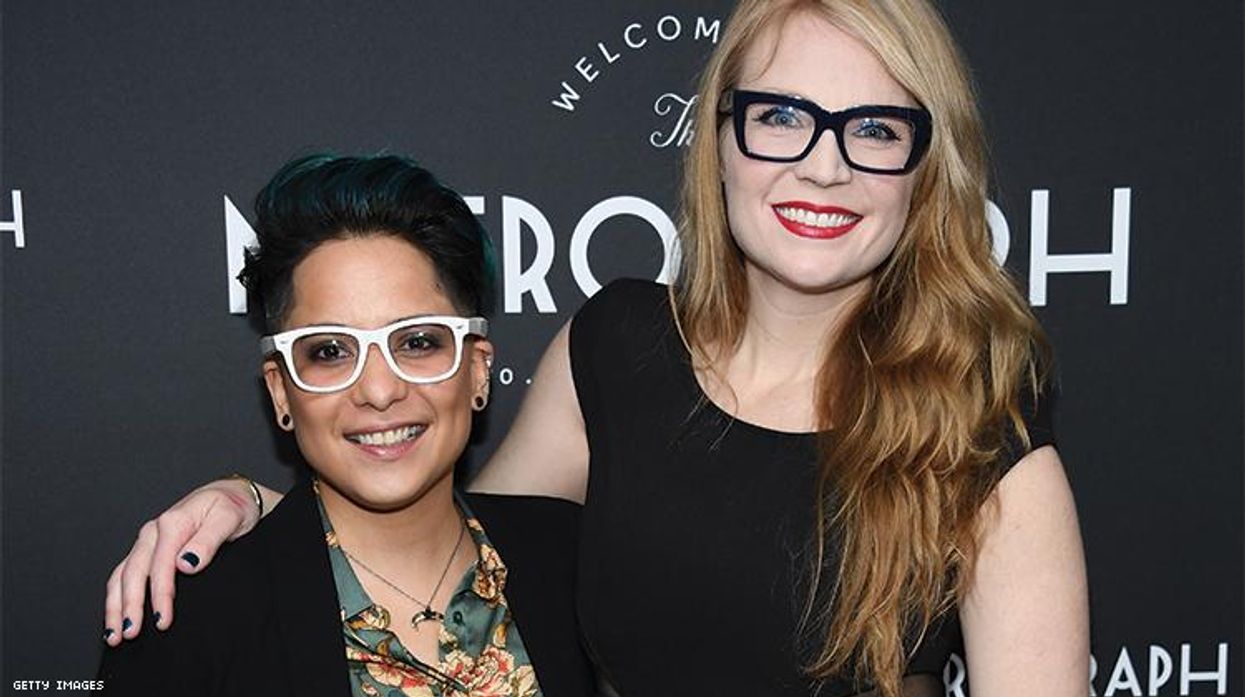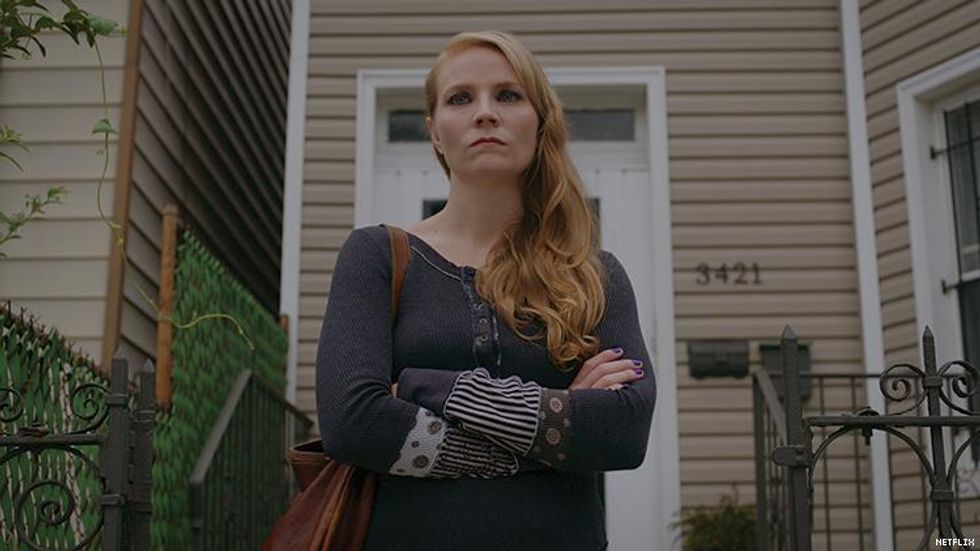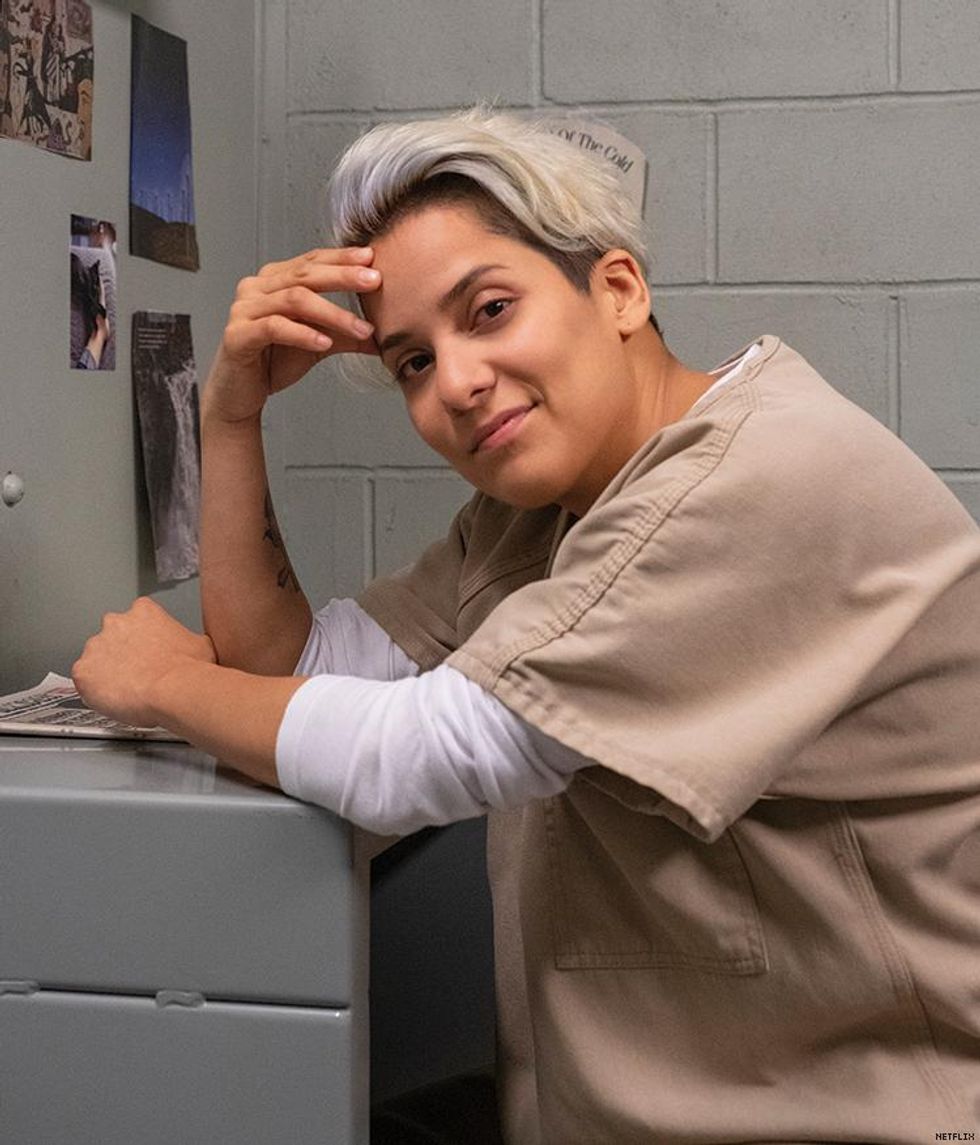When Netflix dropped Orange Is the New Black's first season in the summer of 2013, it changed TV forever. It was one of the first truly binge-able shows to air on streaming -- literally altering the way viewers consumed content. But more than its power to render enthralled fans helpless to turn away for hours when a new season was released, it excavated the intersections of issues facing women of color, lesbians, bisexuals, and trans women. And it did it with humor and heart while tackling tough issues around classism, white privilege, sexual violence, addiction, police brutality, and the prison industrial complex.
The landmark series from creator Jenji Kohan (Weeds, Glow), based on Piper Kerman's memoir, deployed lead character Piper (Taylor Schilling) -- a bisexual white woman happily enjoying her upper-class suburban advantages until she's remanded to prison for running drugs for her ex-girlfriend 10 years prior -- as a Trojan Horse. Via Piper, the series explores an anthology of stories about a cross section of diverse women. And the narratives OITNB engendered continue to reverberate in the real world through the bonds it formed and the issues it tackled.
Given OITNB's commitment to social justice and the nurturing space of mostly women on set, it's no wonder the show fostered two (known) romantic relationships between women. Actress Samira Wiley (Poussey) and writer Lauren Morelli (Tales of the City showrunner) fell in love and were married a few years later. While shooting season 6, Emily Tarver, who played Officer McCullough, the guard who engages in a complicated affair with Alex (Laura Prepon) in the final season, and Vicci Martinez, who played Daddy (the pimp/drug dealer who has a way with the ladies), met and fell in love at the place they say was like going "to [summer] camp" every day.

Emily Tarver
"I think it subconsciously probably made me feel like there's so much acceptance going on [on] that show, on that set with those people, those actors, the crew. ... Everyone is very loving, and I at least knew that if I wasn't accepted in my own life that I have a family in that show," Tarver, a Texas native, tells The Advocate about the environment in which she met Martinez.
"I don't love labels, and I've been with women romantically but never in a long-term relationship, and definitely never to the point where I felt like this person is worth having a hard conversation with my parents about," she adds, also crediting living in New York City as helping her to be open. "The more that I can be courageous about my own situation, maybe it can help other people who are going through the same thing."
With the zeitgeist around OITNB's first season, Tarver and Martinez were fans long before the set foot on set.
"I had never seen anything [like it] -- there was that HBO show Oz. I'd seen men [in] prison a lot in television but never all women and with the amount of diversity," Tarver says. "On top of that, the sexuality of some of the inmates, mainly the two characters [Piper and Alex] ... it definitely changed my opinion on Oh, you can do that. You can tell that story. People want to hear these stories."
Martinez (a finalist on the first season of The Voice) was on a tour and bingeing the series in the backseat of the car as she traversed the country when her manager said, "Man, you should be on that show one day."
"I was like, 'Yeah, right. Nobody's going to pick me,'" Martinez recalls responding to the idea of being on the show that would eventually become her first acting gig.
Although her character's name was Daddy, the nurturing cast and crew looked out for her, she says of the singular experience where she also met her partner.
"I've met some of the best people," Martinez says of the cast. "I met her [Tarver] and now she's the love of my life. That's why I'm here still and that we're doing this interview together," Martinez says. "I love it because I'm with somebody that, I think, understands everything that went along with being on that show. All the feelings, because you did feel all the feelings."
"Going through being on a show, especially an intense show, we met each other in an intense environment where we were both in intense emotional places in our personal lives," Tarver says of the experience she and Martinez share. "They say trauma bonds you. It's a special experience to be able to share with the one you love."
OITNB filled a void for queer women after The L Word ended in 2009, and it helped pave the way for intersectional, issue-oriented LGBTQ shows like Pose and Vida. Tarver and Martinez walked away with a meet-cute story but they also took with them the ethos of a show that not only highlighted the horrors of Donald Trump's immigration policies in its final season but also launched the Poussey Washington Fund to help incarcerated women.

When the cast took the stage to accept the Screen Actors Guild Award for Best Comedy Ensemble in 2017, just days after a newly inaugurated Trump had kick-started his campaign of terror against immigrants, Schilling, on behalf of the stars of one of the most racially diverse series on TV, named the places from which they hailed: Nigeria, Colombia, Puerto Rico, Ireland ... By the time the speech was over, OITNB's legacy as an agent of change was cemented.
Over the summer, Tarver and Martinez set out on a tour of detention centers as part of the work they're doing with the organization Freedom for Immigrants that will culminate with a gala fundraiser in L.A. where they'll sing together.
"Going forward, [OITNB] definitely inspired me to actually be a part of that work," Martinez says.
Regarding OITNB's lasting impression, Tarver says she, of course, loved the visibility it offered for LGBTQ people but she's particularly moved by the stories the show told about "racism the incarceration of people of color, and the [Immigration and Customs Enforcement] detention centers."
"I hope that the legacy of the show can be that it brings about change in some way through all of that," she says.







































































Charlie Kirk DID say stoning gay people was the 'perfect law' — and these other heinous quotes